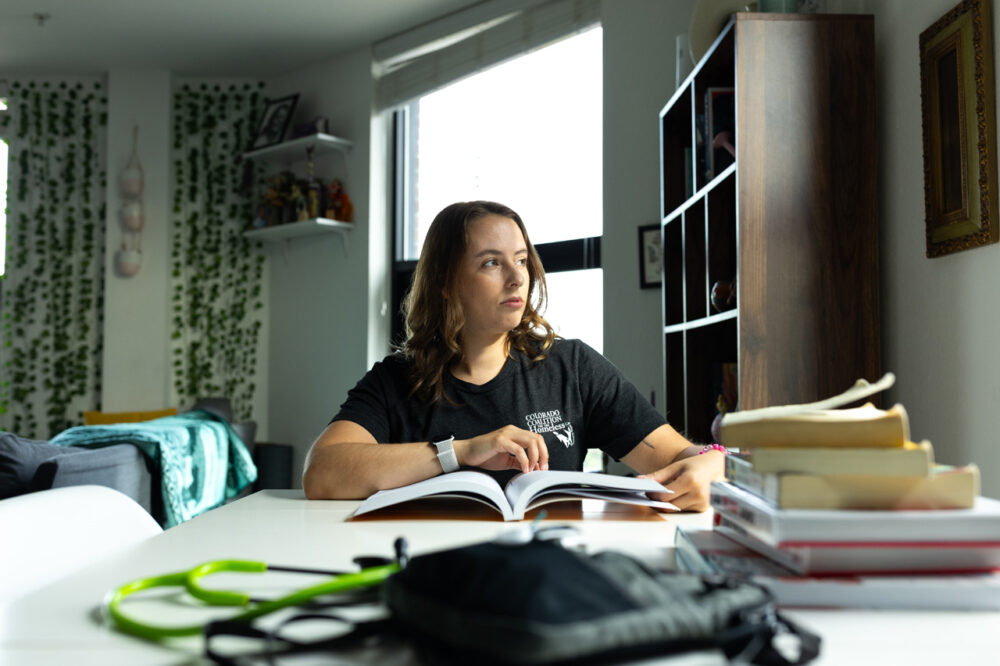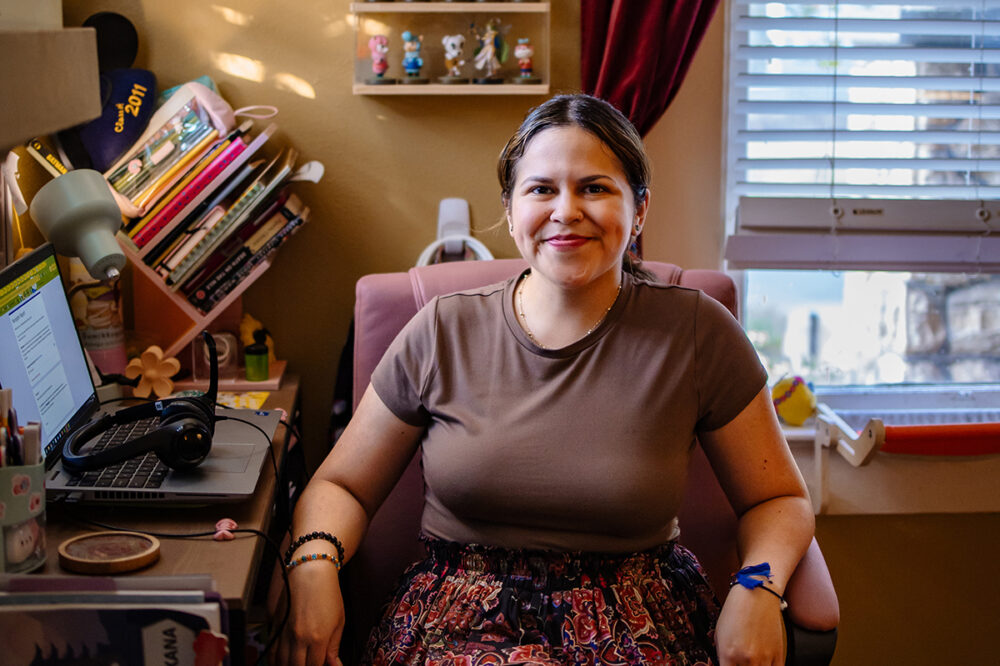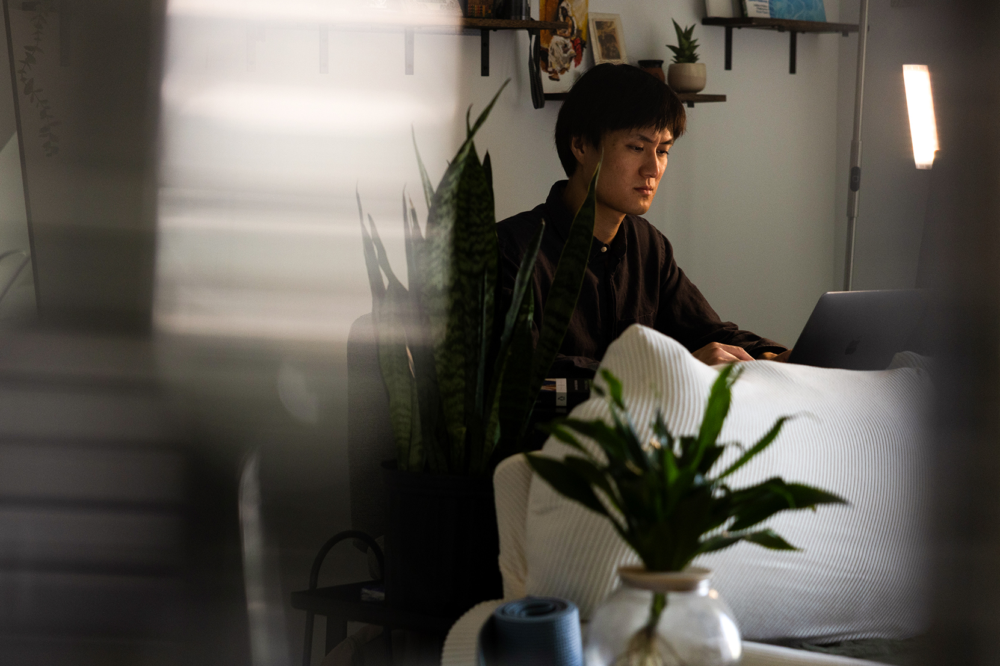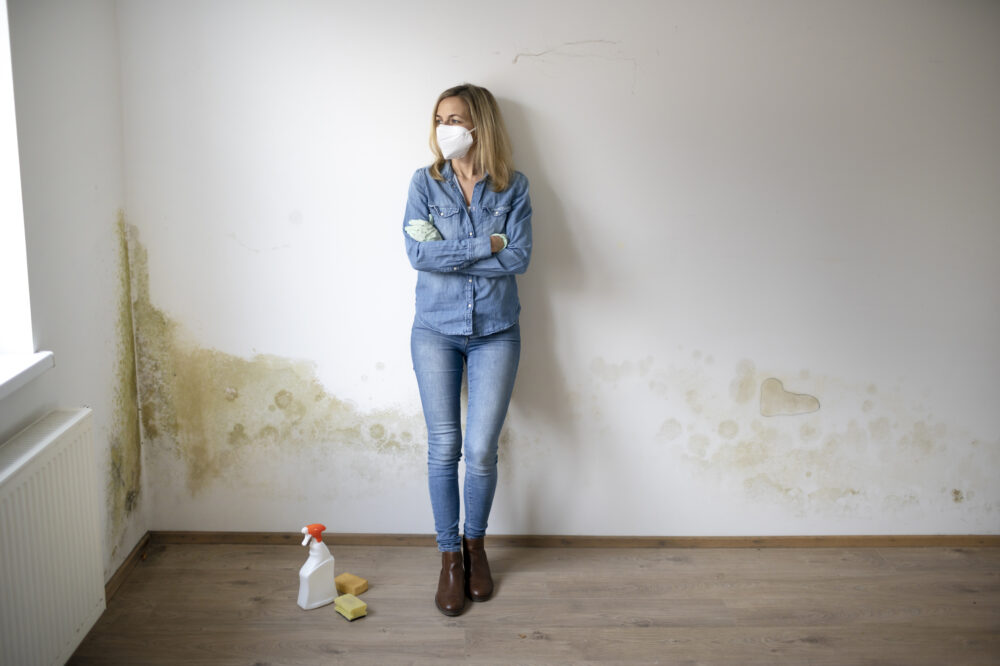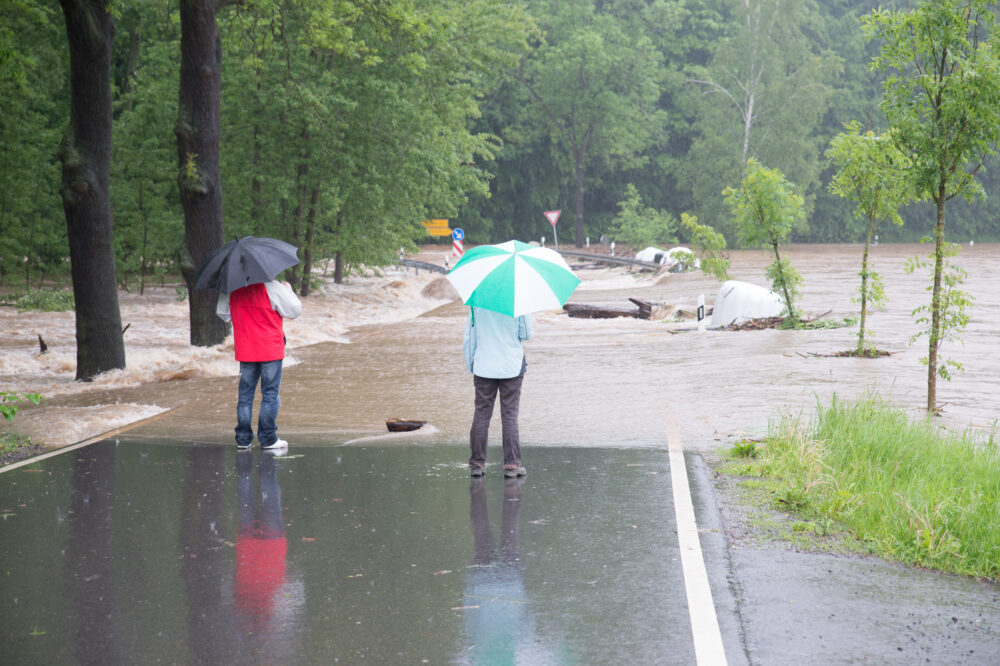‘Embers Around Our Faces’: Amanda’s Story
Amanda’s family fled when LA’s wildfires swept through their tight-knit neighborhood, engulfing many homes in flames. Read how they started over, even against the odds.
By Financial Health Network
-
Category:
-
Tags:
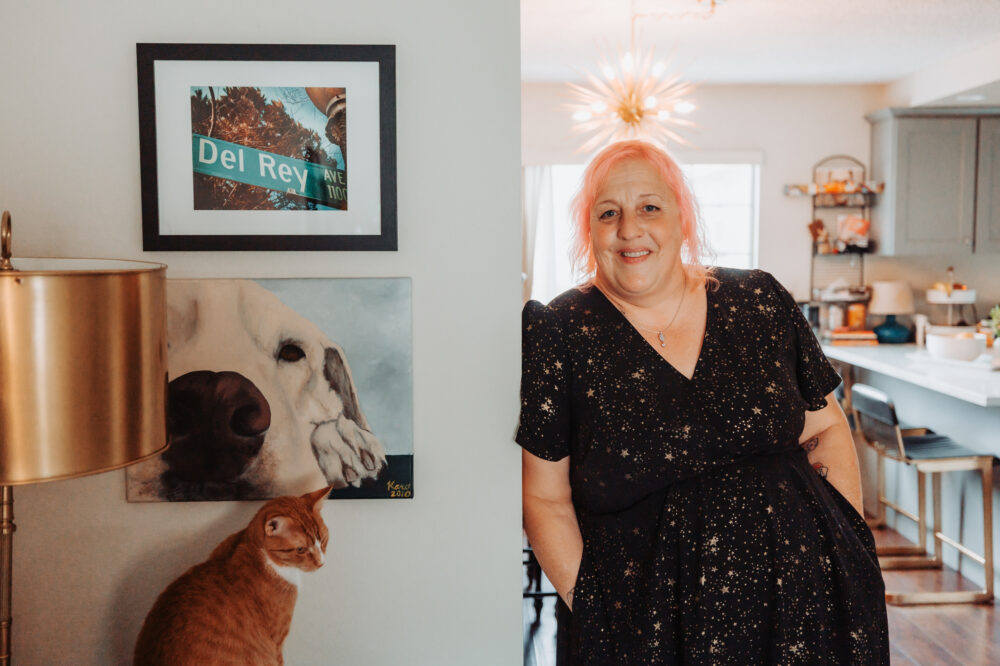
Amanda Gore, 55, spent years living on a block at the foot of Eaton Canyon in Los Angeles County – a place that felt more like family than a neighborhood.
Neighbors looked out for one another, gathering for trivia nights, dinners, and holiday potlucks. But as the January 2025 fires spread, Amanda’s home – and others – suffered irreparable damage from the Eaton fire, which started in the nearby mountains. Some homes were completely destroyed.
“None of us are living on [Del Rey] street anymore, but we still call ourselves the Del Reys,” she recalls.
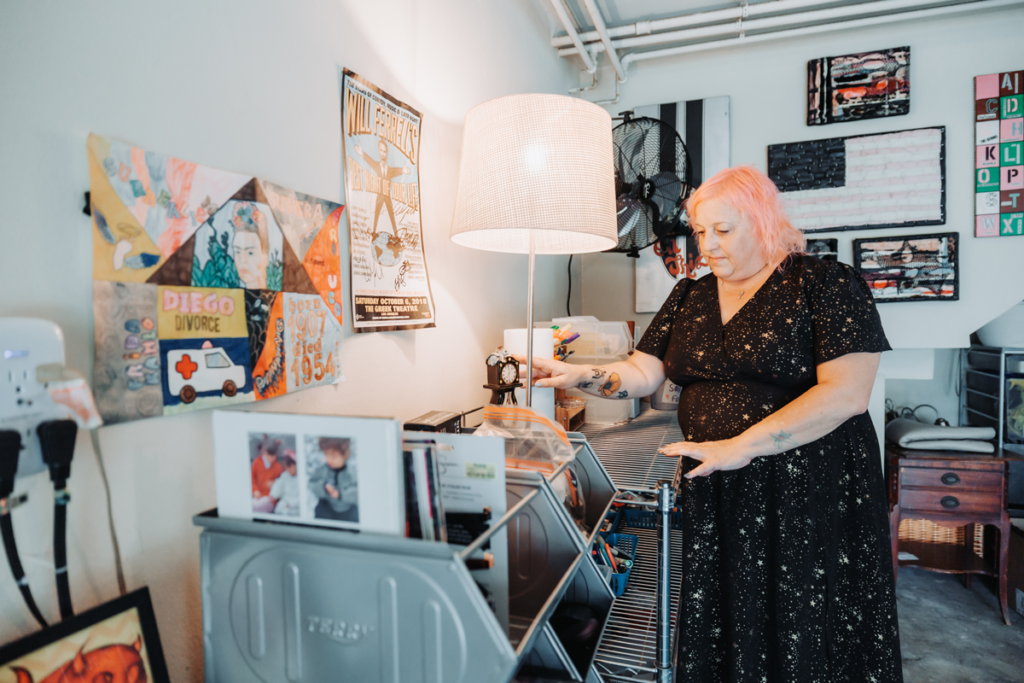
A professional costume designer for 36 years, Amanda has worked on TV shows and films such as “Desperate Housewives,” “2 Broke Girls,” and “The Accountant.”
Luckily, Amanda had renters insurance, which helped cover some of their losses. That added protection put Amanda’s family in a somewhat better financial position than others in their neighborhood. Nationwide, only 49% of renters hold renters insurance, leaving over 22 million households in the U.S. more susceptible to financial shocks due to extreme weather events.
Yet as Amanda and her family sought to turn the page, they struggled to find new housing – and to recover from the fire’s total financial, emotional, and psychological aftermath.
“The police just said, ‘get out, get out.’ It was wild. We were one of the last ones to get our car and get out…we zoomed off the street.”
Amanda, who works as a costume designer for movies and television shows, shares how she was caught off-guard by the quickly approaching wildfire and describes the challenges of finding a new home amid financial uncertainty.
Here’s her story.
I moved to Pasadena seven years ago with my daughter, Veronica, who was 10. We had lived with my sister before, and we wanted to split up. I was able to find us this sort of small 1950s bungalow, a two-bedroom, one-bath. The house was kind of a crumbly mess. The landlord would just put a band-aid over everything.
But we loved the neighborhood. Some friends of ours started a happy hour in our neighborhood. All through COVID, we would see each other every Saturday night. So it became very close-knit. As a single mom in the industry, I always wanted that very stable, traditional block.
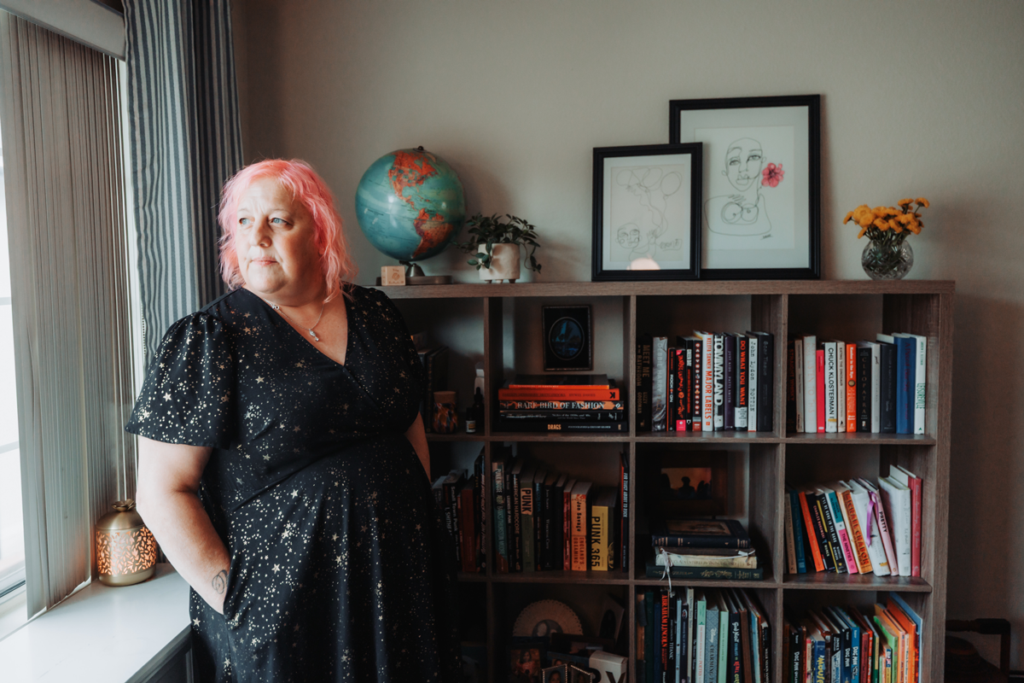
Amanda’s bungalow sat on the very edge of the Eaton Canyon foothills. “I went outside, and literally, our whole hill was on fire,” she says.
When news of the Palisades fire first broke, our whole neighborhood’s focus was on the wind. Even though the Palisades felt far, our wind was crazy. Like a hurricane. But we’re not up in the hills, so it never really occurred to me that that was an issue until my neighbor called and was like, “Are you home? Can you go outside?”
I went outside, and literally, our entire hillside was on fire. It was like a fire tornado. Even the day before, I hadn’t realized the danger, just that the wind was getting so bad. But by then, all these palm trees had dropped their dead fronds, and they were on fire in front of our house.
At first, some neighbors and I grabbed buckets and we were trying to put out the fire. There were embers around our faces and we were breathing in all this smoke. The police were on our street with megaphones being like, “Get out, get out, the fire’s here.” And I looked to my right, and the house was on fire. It was wild.
-
A photo salvaged from the wreckage of their home.
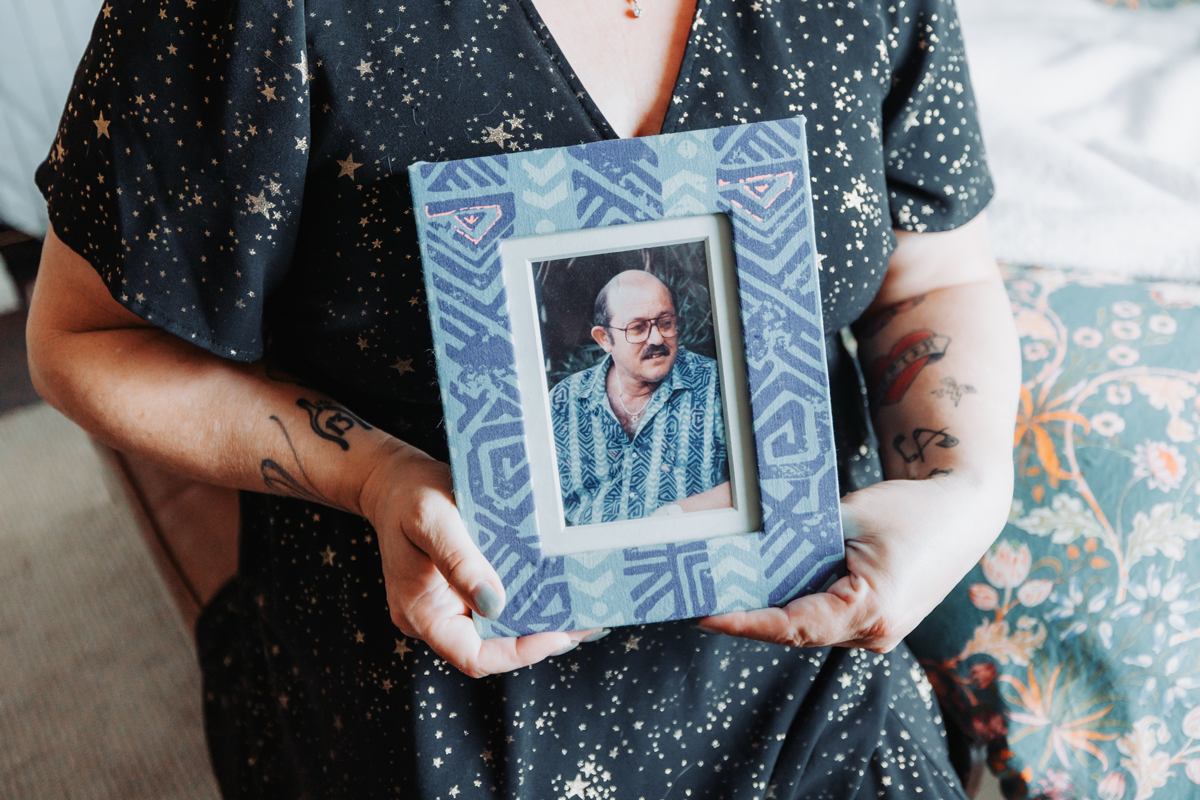
-
Amanda’s pet cat, adopted just a few weeks before the fire.
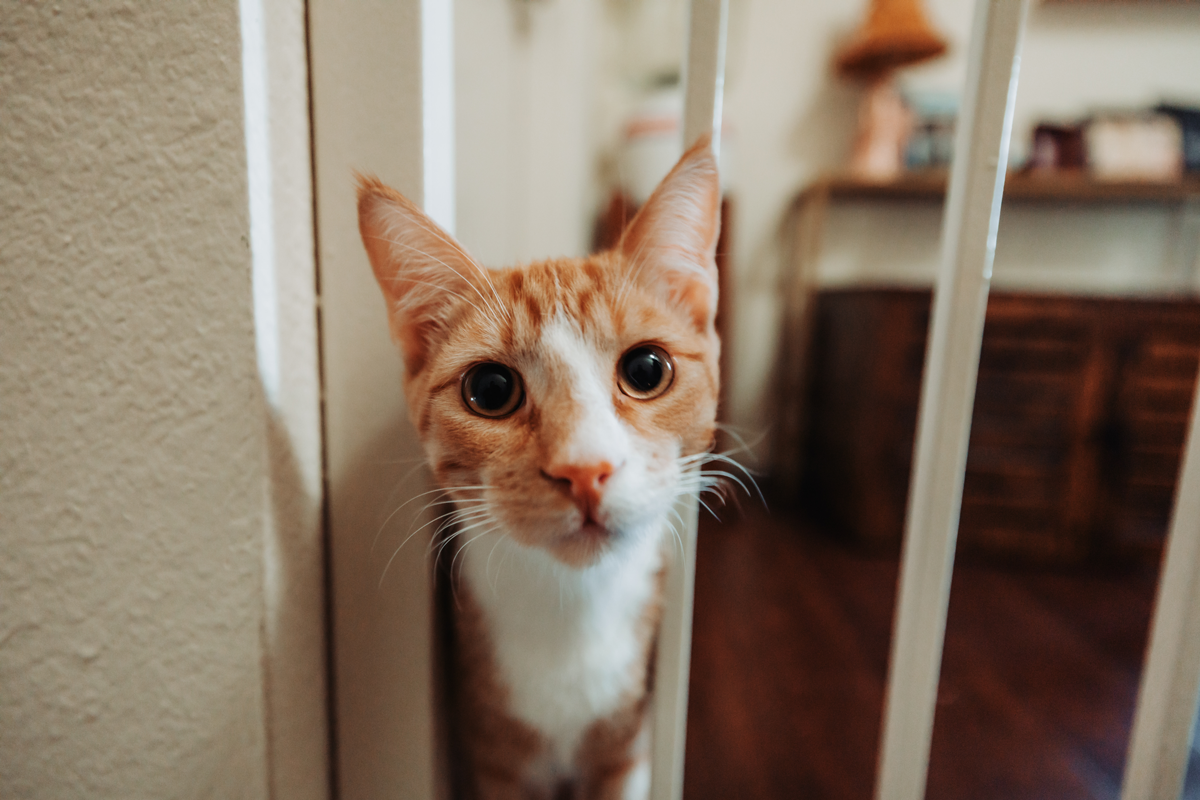
-
Daughter Veronica’s Girl Scout troop, who helped Amanda secure new housing.
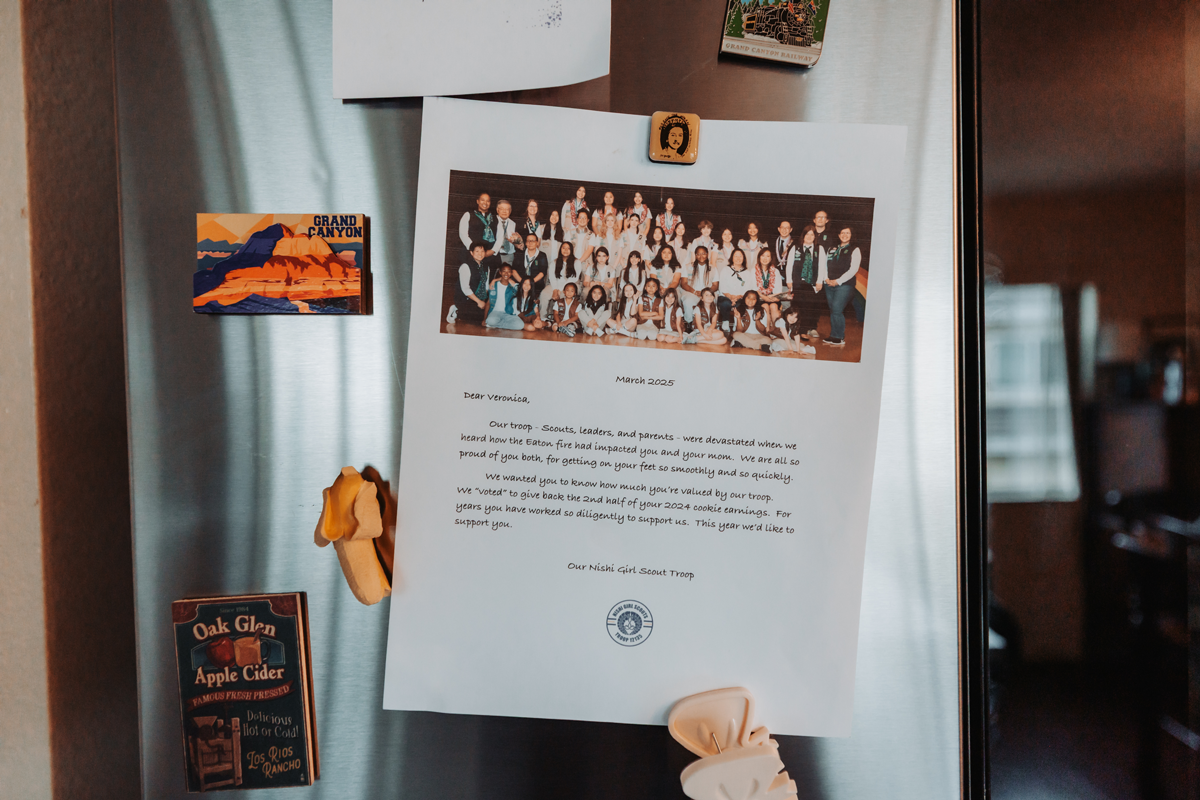
We only had about 20 minutes to pack, so we barely got what we needed. We were one of the last ones to get our car and get out. We zoomed off the street and it was pretty traumatic. The combination of the wind and fire was so outrageous that no one had ever seen anything like it.
We got to our friends’ house with our cats Grim and Reaper. There were five other people that decided to go to their house too. Later that night, I felt really sad, because I hadn’t really grabbed any of my stuff. But I was happy that my daughter had gotten some of the things that she felt she needed. They wouldn’t let us put on the news, which I was kind of sad about at the time. In hindsight, I was so happy that they didn’t let us watch all the destruction. We ended up staying a month.
“We threw away three-quarters of our possessions with our own hands in a dumpster outside. It was so awful.”
I was soon able to get back on our street and get into our place and we grabbed a bunch of stuff. I took clothes, important paperwork, photos. You couldn’t really even be in the house for more than 10 minutes. It was so smoky and just kind of damp from all the water [from attempts to extinguish the fire].
We threw away three-quarters of our possessions with our own hands in a dumpster outside. It was so awful. Anything soft – beds, mattresses, stuffed animals – can never really be remediated after fire damage. Toxic ash will be in there forever.
And the house wasn’t livable. We called the management company and were like “Hey, what’s happening? What are you guys doing?” And they’re like, well, the landlord walked around the property and says he thought it’s liveable, which of course it’s not! My landlord was still trying to say I owed January and February’s rent. He kept my deposit.
I had renters insurance, which is the one thing that the landlord made me get when we moved in. And I thought about canceling that 100 times, and I never did. And thank God I didn’t.
My agent was lovely. I talked to them and they told me I had a $25,000 policy. This happened Tuesday. By Thursday morning I had the insurance money in my account. But I do know a lot of people who are still struggling with their insurance. I think I got lucky because I acted early and fast.
-
A photograph of Amanda with her daughter, Veronica, saved from the wreckage.
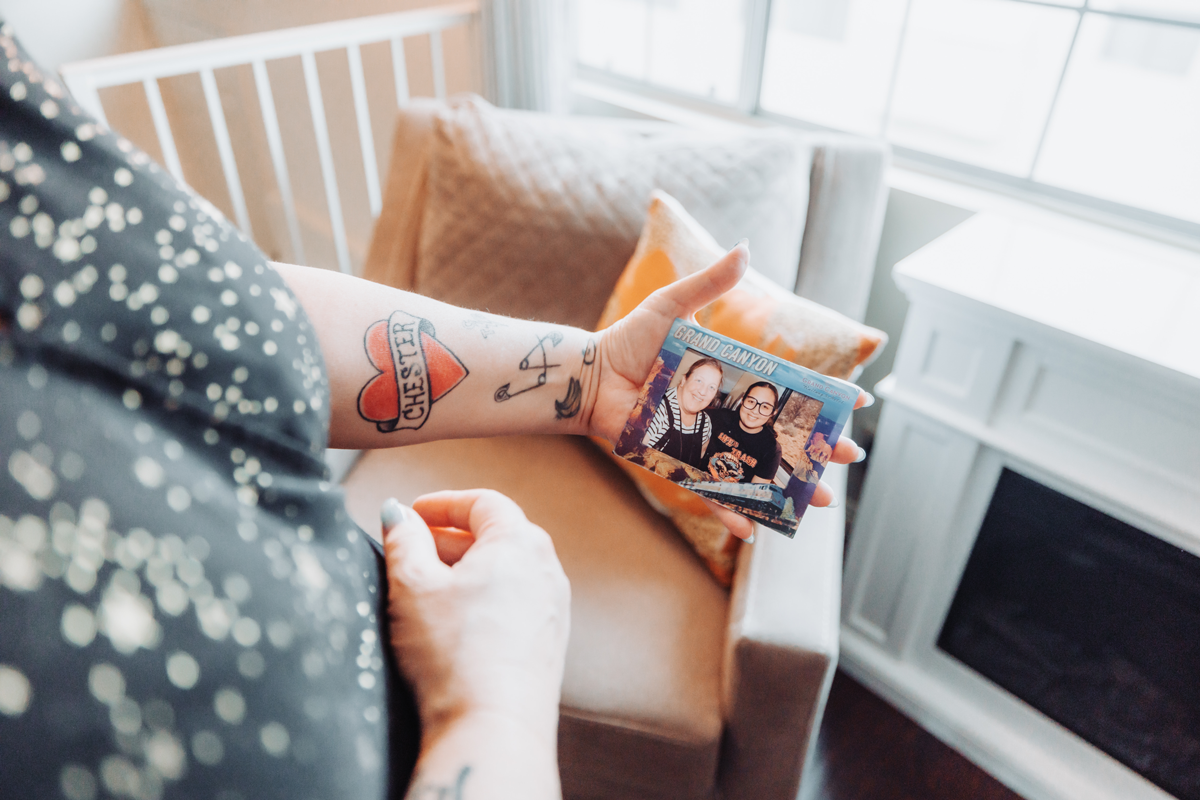
-
Veronica’s badge-sprinkled Girl Scout vest.
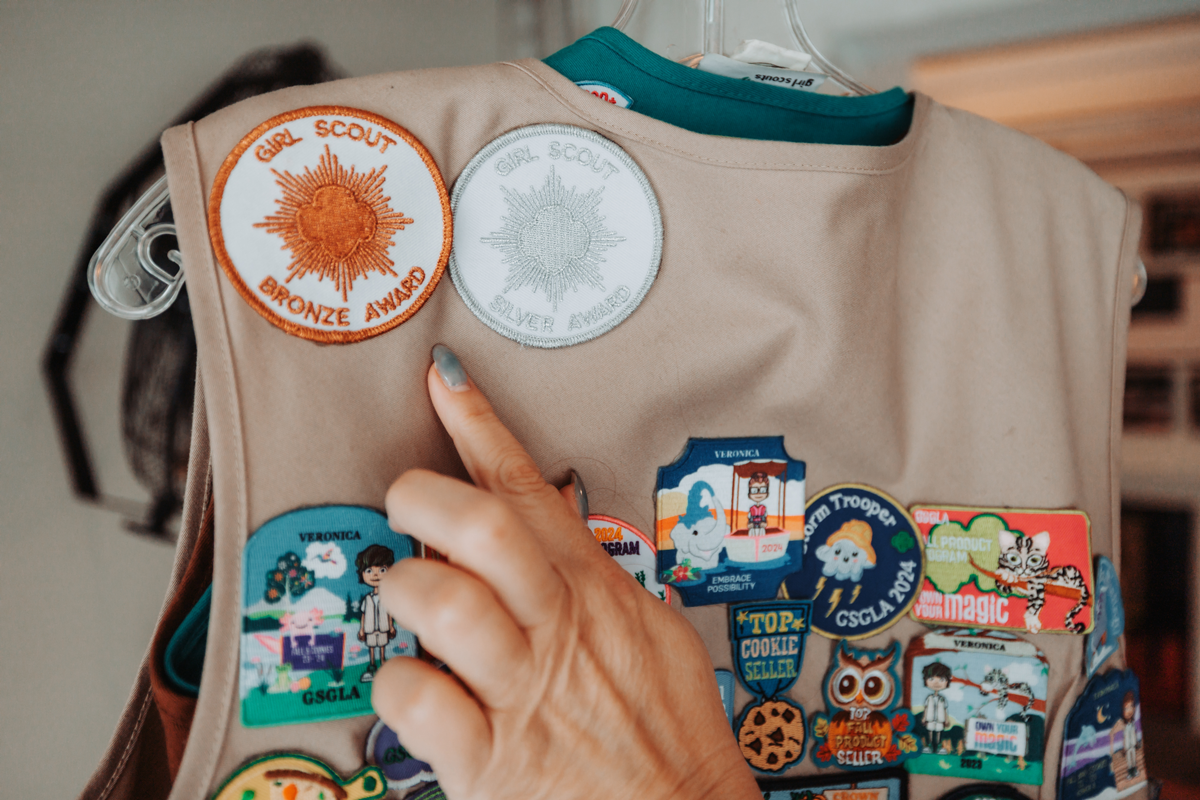
I got two leasing agents starting to look for places because already people were hiking up the rents. Everywhere you went, 50 people were there looking for rentals. It was so disheartening.
Weeks later, we found a place in Monrovia and the leader of Veronica’s Girl Scout troop ended up cosigning for me. [She] offered to cosign for me out of the blue. Although she probably never wants me to tell this. And that’s the only way I was able to get a place, because she did that.
It’s a three-story townhouse. It’s a thousand times nicer than the other place. Rent is about 20% more, but I turned off all the streaming services [to make up for some of the extra cost]. Through it all we feel lucky, I do feel kind of embarrassed about how well it went for us.
Financially, things are [still] uncertain. Costume work has not really come back from the film and television strikes last year. I’ve had zero calls for work.
I ended up having surgery in March and my disability runs out soon. My friend and my mom started a GoFundMe. I just want to limp along until retirement.
-
Thanks to a payout from her renters insurance, Amanda was able to qualify for a new lease by paying several months’ rent in advance. “I’m still processing right now… but I would really encourage every single human to have [insurance],” she says.
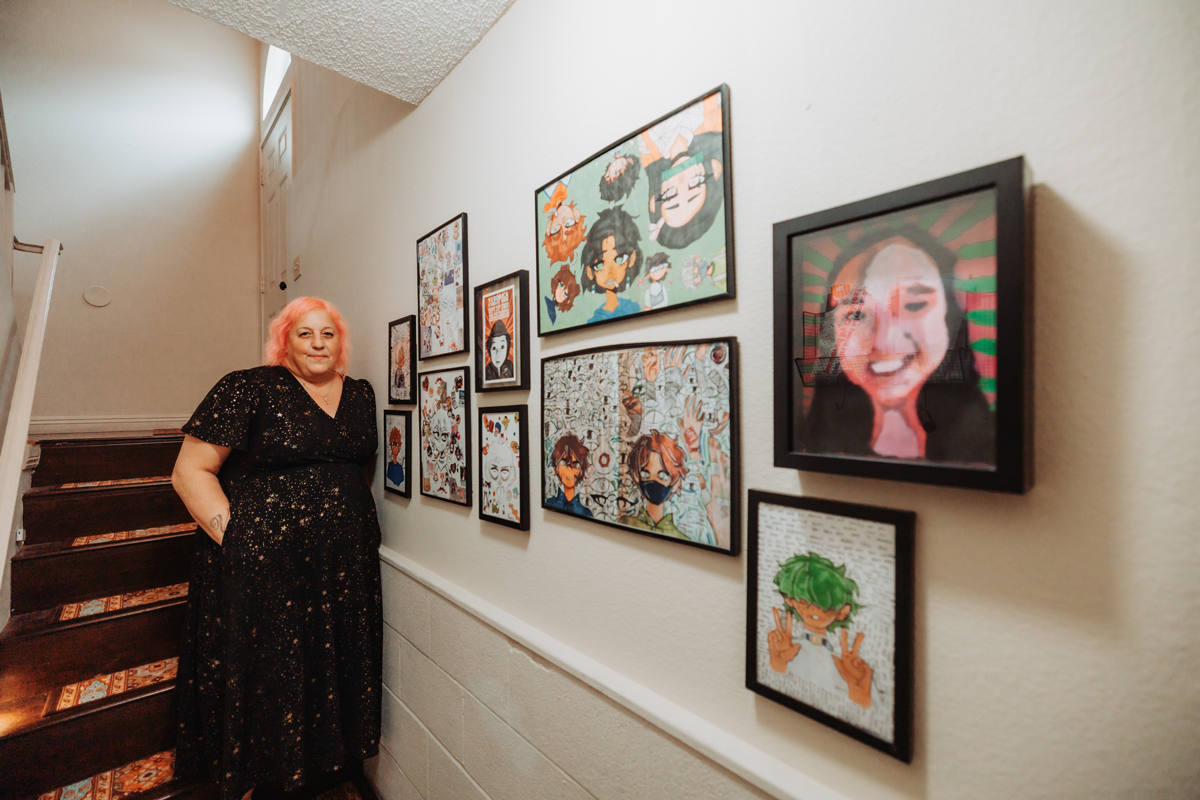
Amanda Gore is one of many people in America facing difficult choices due to the growing fallout of extreme weather events. Research has shown that renters are especially vulnerable to financial shocks from climate events: They receive less government assistance, are displaced more frequently and for longer, and suffer more severe negative impacts from extreme weather than homeowners.
For Amanda, having renters insurance meant she could secure new housing and replace some of the belongings she and her daughter had lost.
Still, relocating after the wildfire placed a heavy financial burden on Amanda and her daughter – including paying thousands more in rent each year and rebuilding their lives from scratch. Stronger renter protections and targeted support can help families like Amanda’s build financial resilience and recover more quickly in the face of weather events.
Share Your Story With Us
Our Human Stories spotlight the real-life experiences of people navigating disaster recovery, disability, career transitions, multigenerational living, and more – bringing fresh urgency to the financial challenges facing Americans today. Have a story to share? We’d love to hear from you.
Read More Human Stories
From Poverty to a College Degree: Angel’s Story
Without a financial safety net, one college graduate’s journey to a diploma was paved with setbacks and plenty of resolve.
Still Striving for Financial Independence: Becky’s Story
Entering adulthood has come with ‘curveballs’ that her parents never faced, and an increasingly uneven playing field to catch up.
600 Job Applications, No Offers: Zerui’s Story
After earning his master’s with honors last year, Zerui is getting by on low-wage work while he continues to apply for jobs. Still, he remains hopeful.
Explore More on Climate
Climate Disaster and Renters Insurance: Who’s Protected?
A new FinHealth Spend Spotlight finds many renters don’t hold renters insurance – and those who do still face climate-related risks.
Strengthening Financial Health for Climate Resilience
Climate hazards have massive financial impacts on households, especially ones that are already struggling. What do they need to be financially resilient in the face of a changing climate?
Exploring the Link Between Housing and Healthcare Costs and Weather Events
Households that experienced a weather event were also more likely to face a range of unexpected housing- and health-related expenses.
